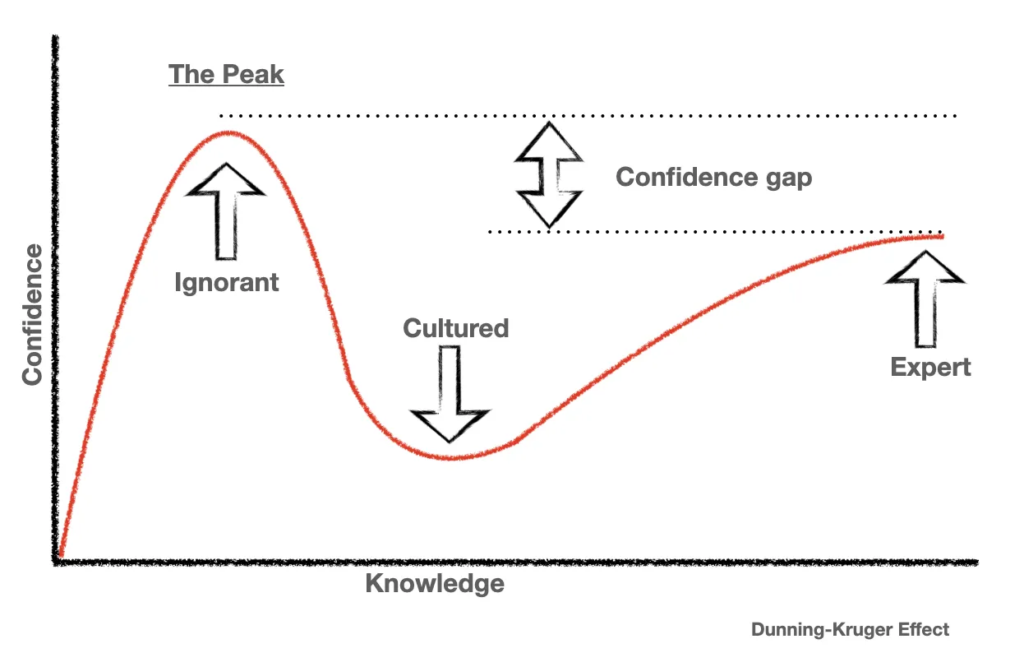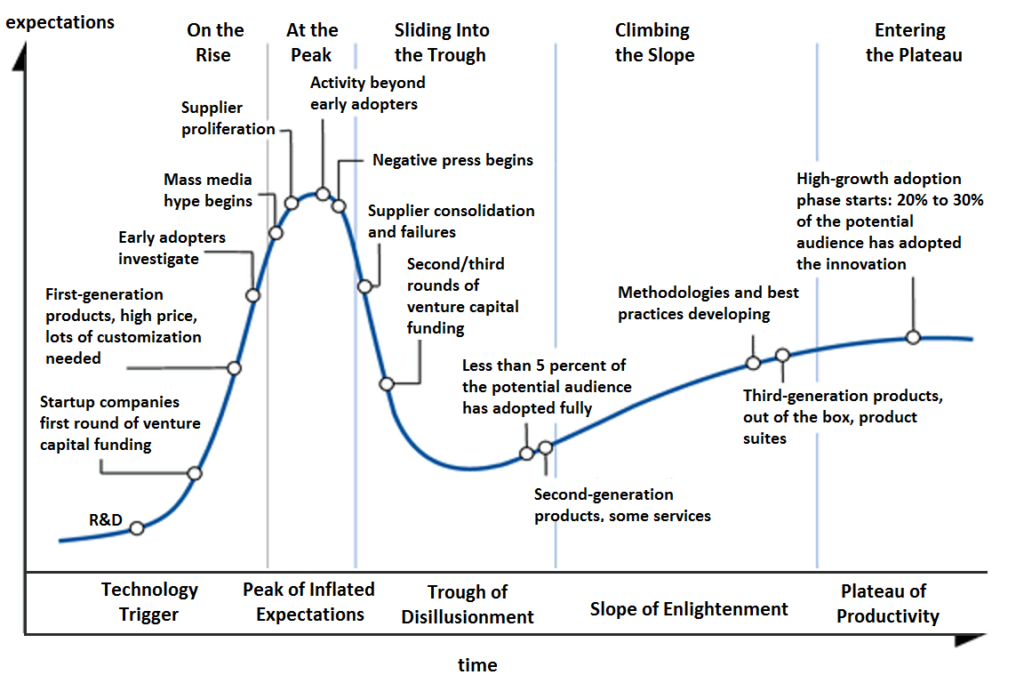Business
The TopRanked.io Weekly Digest: What’s Hot in Affiliate Marketing [LiveChat Affiliates Review]
So, you know how to make money with AI. But do you know how to make money selling AI? (Psst… it’s the ChatBot / LiveChat Partner program). And while we’re on the topic of AI, we’ve also got some hot new product updates from Google (that might open some minor SEO opportunities), and a second take on a question that’s started cropping up a little more frequently again: is AI SEO’s death sentence?

Quick Disclosure: We’re about to tell you how Live Chat run a top-notch affiliate program. And we really mean it. Just know that if you click on a LiveChat link, we may earn a small commission. Your choice.
AI is pretty dope, right? Especially if nonsensical memes are your jam.

But eventually, you realize something.
This is fun. But it’s also kinda unproductive.

Now, I’m pretty sure most readers are already well past this stage.
But for those of you who aren’t, you’re eventually going to start asking the question: “How can I make money with this stuff?”
This week, we have one answer to that question.
(PS: The answer also applies to any other affiliate looking for new AI products to sell.)
Topranked.io Affiliate Program of the Week — LiveChat
This week’s partner program of the week comes from one of the best providers of live chat solutions we could find — the aptly-named LiveChat (who also runs the appropriately named ChatBot.com)

LiveChat Affiliate Program — Here’s What You’ll Be Selling
LiveChat, as the name suggests, is all about live chat. (You know, the little chatbox that sits in the bottom right-hand corner of many websites? That’s the LiveChat thing.)
Now, when it comes to AI, the sort of interactions LiveChat is the front for are pretty much a match made in heaven.
And that’s why LiveChat, being the leader it is, has led the way in integrating AI into its products.
This includes AI auto-completion in its core LiveChat offering which is tailored to live agents. But it also includes a fully autonomous AI chatbot system — the appropriately named ChatBot.com we alluded to before.
Basically, LiveChat blends one of the most in-demand products (live chat platforms) and blends it with one of the clearest use cases for the buzziest thing of the moment (AI).
And that’s why we reckon LiveChat is one of the best, no-brainer ways to make money selling AI right now.

Here’s What LiveChat Will Pay You
If there’s ever a program where “it depends” is a good answer to “how much will I earn,” then LiveChat is a pretty good candidate.
Now, just to get one thing clear — the commissions themselves are pretty clear. That’s a straight 20% of net income from every sale LiveChat sale you make.
Instead, the “it depends” part of LiveChat commissions comes from the simple fact that the LiveChat product is geared towards everyone from solopreneurs to mega-corporations.
That means how much you stand to make depends not just on how many sales you can make. It also depends on who you make those LiveChat sales to.
A Few More Details On LiveChat
Here’s what else you can expect from the LiveChat partner program:
- 120 cookies (this is a big ++’ve).
- A massive dash of social proof that’ll make selling it a breeze (the LiveChat client list includes Mercedes, ING, IKEA, Atlassian, etc.)
- Great support from a really professional team that’s available 24/7.
- And, of course, a really slick affiliate dashboard with everything you need to track and monitor your LiveChat campaigns to your heart’s content.
- LiveChat also offers a “solution partner” program… just in case you ever want to become a “solutions guy” rather than an affiliate.

Join LiveChat to Start Selling AI With the Best
Hands down, LiveChat (both its core LiveChat product, and its fully-automated ChatBot product) is one of (if not the) best solutions out there.
It’s slick, well-priced, and has a ton of social proof, meaning if you can get it in front of the right traffic, it’ll sell itself.
So if you want to sign up as a LiveChat affiliate, just head to the LiveChat Partners site to sign up.
Affiliate News Takeaways
US Consumers Are Walking Towards a Cliff
While the soft landing narrative has gained a lot of traction over the past few months, there are still plenty of “danger ahead” voices around.
Most recently, there have been warnings about US consumers “walking towards a cliff”, as one strategist put it.

That’s just a dramatic way of saying that savings are running out, debt is climbing towards unsustainable levels, and, if things keep going like this, consumers are gonna have to cut back on spending pretty soon.
Now, I don’t want to be too much of a negative Nancy, so I’m not going to dwell on this story too much.
But, if any of the predictions going around are true, then that directly impacts you.
If consumers stop spending, your commissions go down… or, at least, your commissions might go down.
Takeaway
Okay, so we all know that there are so-called recession-proof niches that will survive consumers cutting back on spending.
Heck, there are even niches that will boom if consumers start cutting back on spending (ever heard of the lipstick index?).
But before you get too focused on finding lists of “top-10 recession-proof niches”, let me another idea out there.
Forget what everyone else is focussing on. Find your niche by thinking about all the different demographics out there.
And think about the pain points consumers spending less will cause.
When I did that, the first “victim” I thought of was the average consumer-dependent business.
Maybe they’re a retailer. And maybe they’ll likely experience a big drop in sales.
Now, how do they go about paying their customer support staff while sales take a nosedive?
Well, cutting back on the number of customer service reps would be a start. But doing that while also implementing something like LiveChat (and its integrated AI features) would be even better.

Good luck finding that on any “recession-proof niches” list.
Some Google Updates
In Google Search Central’s “Top News From October 2023” update, there’s an announcement about structured data that might be worth paying attention to.
If you don’t feel like watching the video, the “big announcement” is simply that Google is dropping the “how to” and “FAQ” schemas. (Okay, it’s not completely dropping the FAQ schema… but unless you’re a “well-known, authoritative government [or] health website”, then yeah, FAQ is dropped.)
Aside from this, we’ve also had a bunch of AI product drops from the Big G (mostly around maps and images).
Takeaway
There are a couple of takeaways here. The first is a minor “save your time” takeaway — don’t bother implementing FAQ/How-to schema markup anymore. Google will just ignore it.
The other takeaway is that there are maybe some new SEO opportunities as Google rolls out new AI products.
For example, take a look at this:

That, for the unfamiliar, is a new “about this image” feature Google just added to its Images product.
The idea behind it is that Google’s AI brain will dig up references elsewhere on the internet that might help explain the context/history/etc. behind an image.
And, if Google’s AI thinks your site can potentially help image searchers, then go you.
Now, admittedly, this is going to be a really small side to SEO. The amount of people context/history/fact-checking images will probably be pretty small. But, given the right niche, it could be a good source of traffic.
As for how LiveChat might fit into one of these niches, I have no idea. But I am mentioning it again because, you know — it’s our partner program of the week (and a good one at that).

It Looks Like “AI Will Kill SEO” Is Doing the Rounds Again
As AI matures and we’re seeing more of it slip into more products, it seems the old “AI will kill SEO” thing is getting a bit of a revival again. Here’s one of the think pieces that appeared in the past week.
Now, we already covered one possible answer at the start of the year when, in the wake of ChatGPT’s launch, everyone first started asking the “Is AI SEO’s death sentence?” question.
At that time, the answer was basically yes and no.
AI will kill some SEO. But it won’t kill other parts of it.
To be a little more exact, the precise answer given was that if your SEO strategy “revolves around filling in the longtail ether with 2000-word articles about “How do I plug an iPhone cable into an Android phone?” then… AI will probably kill any traffic you’ve got.”
But then we said there are plenty of other ways AI won’t kill SEO for a long time.
Now, of course, the whole LLM buzz was kinda new at the time, so it was kinda hard to separate hype from fact.
But, with a little more perspective, there are some possible precisions we can add.
Spoiler alert — the answer will pretty much be the same as it was then. (So, be aware of the confirmation bias ahead.)
Anyway, let’s take a look at how dead SEO is… or isn’t.

AI Is Really Great, Until It’s Not
On first impression, LLMs like ChatGPT look like they show “emergent” capabilities.
After all, they can write code better than a human can. They can write prose better than a human can. And they can do it faster than you can blink.
And, if we’re to believe the testing suites OpenAI and Co. use to evaluate their AIs, those emergent capabilities are all real.
But then, as we’re starting to see, some of those dazzling performances fall apart pretty quickly.
The first example that comes to mind cropped up in a semi-recent MIT Technology Review article which told the tale about GPT4 getting perfect scores on a set of programming challenges.
But then completely failing on another set.
Now, the difference between the two sets of questions had nothing to do with difficulty. They were both sets of “beginner” questions.
What did change, however, was that GPT4’s training data (September 2021 cut-off) contained the solutions from the set it passed. The other set was made up of problems it had not seen solutions to before.

And it isn’t just the cynics raising the possibility of these sorts of ‘problems’. In fact, even those who are more bullish on AI are at least starting to pose some questions here.
The most recent example is the 2023 state of AI report which just dropped this week.
Now, for context, this is a generally glowing report put together by “AI-first” VC firm Air Street Capital.
And still, we’re seeing language slip into it like “emergent capabilities might be mere artifacts of researchers’ choice of evaluation metrics”, or “long contexts (mostly) don’t live up to the expectations.”
It’s Easy to Get Distracted by Smoke and Mirrors
To look beyond LLMs, it’s maybe worth taking a broad look at the self-driving cars hype train. Given it’s been around for about a decade longer, it’s maybe a nice leading indicator.
Now, we already touched on this a few weeks back in another Affiliate Marketing Digest when we observed that self-driving cars have been “just one year away” every year since 2014.
But then we left it at that.

Now, of course, one possible explanation for why this is the case comes from the haters who like to blame everything on Musk. The gist here is “hrm hrm hrm, Musk overruled engineers, and that’s why self-driving isn’t living up to the hype.”
But I’m not convinced Musk is the problem. I mean, his presence hasn’t stopped SpaceX from making all sorts of progress. It hasn’t even stopped Tesla from doing most of what it sets out to do.
So the problem probably isn’t Musk alone.
Instead, the problem is more likely similar to the “AI is great, until it’s not” problem above.
That is, there’s a great side that gets heavily publicized/lobbied/marketed/etc. And then there’s a not-so-great side, which sees it fall apart.
Let’s take Waymo, for example.
It claims its vehicles are way safer than human drivers.
And, you know what. Maybe they are?
But there are potential problems here.
The first, assuming the technology is, in fact, safer than human drivers, is similar to the problem LLMs have when dealing with novel situations that weren’t in its training data.
In other words, what happens if the AI driver is free to roam outside of its training area? (For reference, Waymo operates in a very limited geographical area.)
Now, intuitively, we might think driving is driving. But think about it a little more, and it soon becomes a little more complicated.
Drivers behave differently in different cities. Pedestrians behave differently in different cities. Even something as benign as traffic circles, of which there are just 13 in Waymo’s service area, are subject to a litany of design considerations, from entry path radius to splitter island designs.
All of that (and countless other changes) conspire to produce (almost literally) an infinite number of novel situations.

So what happens when the AI has to deal with a new situation that it can’t use statistical sleight of hand to deal with? So far, a lot of research tends to indicate that it falls apart fast.
Kinda like how it aces one set of beginner coding questions, but fails the other simply because its training data hadn’t seen the solutions.
Now, when it comes to self-driving, this sometimes just plain funny. Kinda like that time the kids in SF disabled Waymos/Cruises simply by putting traffic cones on the hood. Other times, it’s just inconvenient (and maybe still slightly funny), like when it creates newsworthy traffic jams.
But in most other cases, this inability to deal with novelty is probably more to blame than Elon is for why self-driving hasn’t lived up to the hype.
And then, we come to the second problem.
Can we even believe Waymo’s safety claims?
You see, the paper on which this claim is based “determined [that Waymo is safer] by comparing Waymo’s third party liability insurance claims data with mileage.”
Now, full disclosure, what I’m about to say is 100% conspiracy theory and based on personal anecdotes. But, still, here goes.
The problem here is that insurance claims are liable to manipulation. To fall back on anecdote, in my only experience here, when it came time to exchange insurance details, the other driver tried to convince me to not go through our respective insurance companies, instead offering to write me a check.
And, you know what? Had that offer been big enough, chances are, I would have considered the offer.
And I’m sure others would have, too.

But now let’s imagine I’d had that crash with someone who faced a little more than a small premium hike on their insurance bill if a claim went through.
And let’s also imagine they also had billions worth of investment, plus the chance at capturing a multi-trillion dollar industry on the line.
Now, this is purely hypothetical, but I reckon there’s a good chance that the other party might have had just enough motivation to make that check big enough to make the claim go away.
Just saying.
What’s Written on the Tin Doesn’t Always Match What’s in the Tin
Basically, all of this is to say that there are probably very large gaps between what’s written on the tin (where the “tin” is the product of mega-million dollar marketing/lobbying/PR/etc. budgets), and what’s actually inside the tin.
Now, that’s not to say that what’s in the tin is no good.
Conspiracy theories aside, there’s no reason not to think autonomous vehicles operating in a limited area won’t be safe.
And we’ve all personally seen how good LLMs are at spitting out confident, well-written content that’s mostly right.
But that doesn’t mean we should necessarily believe everything that’s written on the tin.
And that means that, despite appearance, AI might not kill SEO.
At least, not for a very long time.
Now, sure, as we predicted at the start of this year, there’s still a pretty good chance that all the generic, mass-produced fluff that makes up the bulk of SEO today is probably about to get swallowed by AI.
Eventually, people are just going to learn to trust the AI when the alternative is reading a 3000-word blog post about how to tie their shoelaces.
But there’s also a bunch of stuff that, for a very long time, AI won’t be able to fill in.
Takeaway
Just to reiterate — none of this is to say that AI isn’t all sorts of useful. That’s not the point.
What it is to say, is that I suspect what we’re being promised is a gourmet, seared tuna steak. But, as we start to open the tin, what we’re starting to find is generic canned tuna instead.

In other words, there’s nothing inherently wrong with it. It’s still fine to include it in your diet.
But just don’t expect it to replace a nice meal in a restaurant any time soon. (Just to be clear, SEO is the nice meal in a restaurant in this analogy.)
So basically, what all the above is about is reframing the way we think about AI. That way, we can maybe start to see the cracks that the people distracted by “emergent capabilities” and doomsday “paperclip” scenarios are missing.
That sort of stuff, if self-driving is a leading indicator, is way off in the future.
And that means, there’s probably still plenty of life left in the SEO game.
Now, sure, as we said, AI will probably kill the easy stuff.
But it will also continue to completely fall apart as soon as you ask it, let’s say, “How to install WordPress on Ubuntu 24.04” because the old guides for Ubuntu 23.04 no longer work because some obscure change broke the install.
It will also have trouble doing things like, let’s say, reverse-engineering the recipe from that new tuna steak restaurant that just opened in town.
And that means it’s going remain very dependent on what other people have said for a while.
And that means Big G & Co. are going to have to leave some money on the table so the good old market economy can take over and fill in the holes.
And that means, until AI models get a seriously big upgrade, SEO will live on. (Or they’ll have to create a new economic model that inspires the same level of voluntary content creation that SEO does.)
And now, with all that said, you at least have a starting point for working out where your SEO game will continue to live.
With that said, if AI is going to kill SEO and SEO’s your game, then maybe it’s worth hedging your bets and just selling AI instead.
I hear LiveChat has a pretty good program to get you started.

Closing Thought
Let’s talk about the Dunning-Kruger effect.
That’s the famous effect where, when we first learn something new, we feel like experts. Then, we start to realize there’s much to learn.
So we sink into the valley of despair.
Self-doubt sets in.
“Will I ever be good at this?”
And then, if we stick with it long enough, we emerge out the other side, way more competent than we once were.
Here’s a visual representation of it.

So, apart from telling you something you probably already knew, what can we learn from it?
Well, here’s my thinking — it came into my head as a nice analogy for our reaction to LLMs… but, in reverse… kinda of like an out-of-body, third-party Dunning-Kruger experience.
As we have our first interactions with LLMs, our estimation of their abilities goes up fast. Then we start learning to prompt them and the curve goes up a bit more. And then, we start to see all the ways we can apply them. The curve goes up just a little bit more.
But eventually, the valley of despair awaits… followed by the enlightenment.
You get the gist.
And then I realized, this effect is pretty easy to generalize.
I mean, take a look at the Gartner hype cycle:

Kinda looks the same, doesn’t it?
Overblown expectations. Valley of despair. Plateau of productivity.
So then, what else can we generalize this to?
How about something like success and failure in affiliate marketing?
If you’re a new affiliate, you’re head’s probably full of confidence about how you’re going to make it big.
You’ve read up on affiliate marketing.
You’ve seen all the programs out there.
Time to put it into action.
Now, if you’re like 99% of affiliates, your first few shots aren’t going to go as smoothly as you thought they would.
Soon, you’ll sink into the valley of despair.
Doubts will creep in.
“Can I do this?”
“Are the people who say this is possible just lying to me?”

But then, if you stick with it, you’ll start to figure out how to make things work better.
You’ll learn from past mistakes. You’ll figure out what works. You’ll learn to adapt outdated or wrong advice to your niche. You’ll realize your initial expectations about making billions or cutting back to a “4-hour work week” were probably unrealistic.
And that is when you reach the plateau of productivity — the plateau where you can say you made it.
Long story short — whether it’s AI hype cycles, your life as an affiliate, or anything else that’s subject to overblown expectations, consider using the Dunning-Kruger curve to shape your thinking.
It’ll help you see past those valley-of-despair thoughts.
And, just in case you are in the valley of despair right now, why not try LiveChat? As an in-demand product from a company with a ton of social proof, it might just be the easy ticket you need to get yourself out of the rut.

__
(Featured image by SevenStorm JUHASZIMRUS via Pexels)
DISCLAIMER: This article was written by a third party contributor and does not reflect the opinion of Born2Invest, its management, staff or its associates. Please review our disclaimer for more information.
This article may include forward-looking statements. These forward-looking statements generally are identified by the words “believe,” “project,” “estimate,” “become,” “plan,” “will,” and similar expressions, including with regards to potential earnings in the Empire Flippers affiliate program. These forward-looking statements involve known and unknown risks as well as uncertainties, including those discussed in the following cautionary statements and elsewhere in this article and on this site. Although the Company may believe that its expectations are based on reasonable assumptions, the actual results that the Company may achieve may differ materially from any forward-looking statements, which reflect the opinions of the management of the Company only as of the date hereof. Additionally, please make sure to read these important disclosures.

-

 Crypto1 week ago
Crypto1 week agoThe Crypto Market Rally Signals Possible Breakout Amid Political Support and Cautious Retail Sentiment
-

 Crypto4 days ago
Crypto4 days agoBitcoin Hits New Highs in USD, But Euro Investors See Limited Gains
-

 Crypto2 weeks ago
Crypto2 weeks agoXRP vs. Litecoin: The Race for the Next Crypto ETF Heats Up
-

 Crypto1 day ago
Crypto1 day agoCrypto Markets Surge on Inflation Optimism and Rate Cut Hopes













